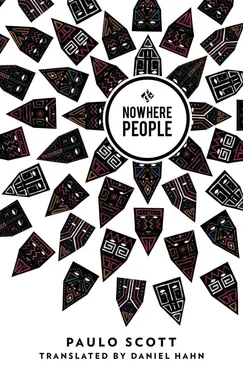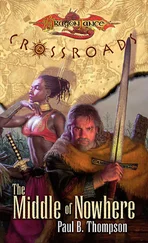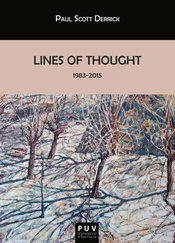palindromes (second part)
Paulo steps out of the lift, turns right and sees that he has arrived on time. Lawyers, interns, curious bystanders, litigants, civil servants, security guards; apart from the journalists almost everyone is troubled by the presence of the man in the mask. Paulo approaches. ‘You’re a very brave lad,’ he says. Donato turns. ‘Sorry, senhor, I’m not in the mood to talk.’ Though the sound that comes out from behind the mask is muffled, it’s possible to hear that he is apprehensive (over the years Paulo has become good at detecting apprehensiveness). ‘And your followers?’ Paulo asks. ‘I’m on my own,’ says Donato. ‘Don’t you get cramps standing in the same position for such a long time?’ He ventures this other question. ‘Sorry if I wasn’t clear, senhor, I don’t want to talk,’ he replies. ‘Wouldn’t it have been better to call for a lawyer to go with you? I can offer my services for free. It would be a pleasure to go into that hall with you,’ and he gestures towards the hearing room. ‘Let the world adapt,’ Donato says and moves away from him. ‘They’re going to make you take off that mask … ’ Paulo follows him. ‘I’ve stuck my forehead to the mask with superglue.’ Donato does not stop walking. ‘I knew Maína, your mother … ’ Paulo says. Donato stops. ‘What’s your name?’ ‘Paulo.’ ‘I was planning to hang myself tomorrow, Paulo.’ And Catarina runs over. ‘I’m sorry, I’m so late, aren’t I?’ and hugs Donato. ‘Catarina, I’d like to introduce you to my biological father: Paulo.’ Paulo moves away and, pathetic as always, seeks support from the wall. ‘Are you kidding?’ she says. ‘Can you give us a moment, Catarina?’ Paulo is looking down at the floor as if the floor might suddenly disappear. Catarina leaves. And Donato, understanding what it is to be two dead men (in Maína’s final breath), wants to hear a little more of the voice that till this moment he has only heard in the hissing of the recording that dribbled out of one of the audio cassettes that Luisa kept.
For Maína
And for Donato
Rener
I got up at five in the morning, turned off my computer, went into the living room, picked up the mask that was still on the floor, tore off the leather straps, leaving just the wood, I sawed it in half. I looked out the window, it was still raining. After so many years, it was still raining. Sometimes, in secret, I would drive to Pelotas trying randomly to find Angélica and return her exercise book. I would order a coffee at Aquários and then I’d return to Porto Alegre. Luisa never knew about my return trips to Pelotas. Luisa doesn’t know I used her in the story. She doesn’t know about the times I stopped the car by the roadside and made a huge mental effort to get time to turn back. Luisa is going to hate the way I decided to depict her, she’ll hate where I’ve put her. Luisa has been the only important person in my life these past few years, but I can tell how tired she is. They say it’s normal to be demanding and take advantage of those we like most. It was you, Luisa, who suggested I write this story, after all. Perhaps I’ll replace your name with another, with Carla Cecília, perhaps. I don’t know. I keep wondering what people who know me are going to say. Will it give my political enemies new arguments to use? Is it a completely ridiculous idea that — when I drove back those few kilometres, unable to go very fast because of the storm — I found the Indian girl dead? Would that revelation be too absurd? Now here comes the difficult part of this whole epic play, Luisa. Nobody knows that I tried to revive her, nobody reported that her body rolled over, and she was lying face up on the ground, and her pregnancy was visible. There was no sign of life. I touched her — understand? I touched her and I didn’t have the courage to put her in the Beetle. I will never be able to save the country or the world, Luisa, writing plays doesn’t have that sort of power. I know it’s not wise, the idea of seeing a life within the dream of a dead person. I’m sorry, Luisa. But I think that’s what it’s like when you can’t see a way out: nothing is apart, life is what it is, engagement, defeated generations, and we get used to the pain, the pain that will, finally, do the rest.
Besides the advice and invaluable friendship of Isa Pessoa, I am immensely grateful for the partial readings undertaken by Anna Dantes, Antônio Xerxenesky, Beto Brant, Camila Dalbem, Daniel Galera, Fernanda D’Umbra, Maína Mello and Olavo Amaral, and for the extremely pertinent suggestions they made. Likewise the reading of two thirds of the second version out loud (so that I could get a sense of the way it sounded) by the actress Glauce Guima. In addition: the bibliographic references furnished by Ana Elisa de Castro Freitas, Alberto Mussa and Marta Machado, and the advice of Gilson Vargas, Joca Reiners Terron, Ronaldo Bressane and Simone Campos. Finally, to Marcelo Ferroni and André Marinho and their respective editorial teams, as well as to the staff of Petrobras and the Ministry of Culture.
There were two days, when I was still living in the Jardim Botânico neighbourhood of Rio de Janeiro, when I read the first version of the novel to Marlene Iara Rocha Scott and Elói Rodrigues Scott, ever-present parents; besides the fun of it, there were little suggestions I did not follow, valuable though these suggestions were.
The titles of the first two chapters and the fourth were taken, with the poet’s permission, from Fragma (Expressão Gráfica e Editora Ltd. — Fortaleza, 2007) by Cândido Rolim — my way of paying tribute to this remarkable writer.
Part of the interview given by Catarina to the reporter in the final chapter was adapted, with permission, from the interview I carried out with Thais Petzhold, who with Laura Leiner and Fernanda Chemale ran the Projeto Transeuntes (the Travellers’ Project).
Dear readers,
We rely on subscriptions from people like you to tell these other stories — the types of stories most publishers consider too risky to take on.
Our subscribers don’t just make the books physically happen. They also help us approach booksellers, because we can demonstrate that our books already have readers and fans. And they give us the security to publish in line with our values, which are collaborative, imaginative and ‘shamelessly literary’.
All of our subscribers:
• receive a first-edition copy of each of the books they subscribe to
• are thanked by name at the end of these books
• are warmly invited to contribute to our plans and choice of future books Become a subscriber, or give a subscription to a friend
Visit andotherstories.org/subscribe to become part of an alternative approach to publishing.
Subscriptions are:
£20 for two books per year
£35 for four books per year
£50 for six books per year Other Ways to Get Involved
If you’d like to know about upcoming events and reading groups (our foreign-language reading groups help us choose books to publish, for example) you can:
• join the mailing list at: andotherstories.org/join-us
• follow us on Twitter: @andothertweets
• join us on Facebook: facebook.com/AndOtherStoriesBooks
• follow our blog: Ampersand
This book was made possible thanks to the support of:
AG Hughes · Adam Butler · Adam Lenson · Adrian May · Aidan Cottrell-Boyce · Aine Bourke · Ajay Sharma · Alan Ramsey · Alastair Dickson · Alastair Gillespie · Alastair Laing · Alec Begley · Alex Martin · Alex Ramsey · Alex Webber & Andy Weir · Alexandra Buchler · Alexandra de Verseg-Roesch · Ali Conway · Ali Smith · Alice Nightingale · Alisa Brookes · Alison Hughes · Alison Winston · Allison Graham · Alyse Ceirante · Amanda Anderson · Amanda Banham · Amanda Dalton · Amanda Love Darragh · Amelia Ashton · Amy Capelin · Amy Sharrocks · Amy Webster · Ana Amália Alves · Andrea Davis · Andrew Marston · Andrew McCafferty · Andrew Nairn · Andrew Pattison · Andy Burfield · Andy Paterson · Angela Creed · Angela Thirlwell · Angharad Eyre · Angus MacDonald · Angus Walker · Ann McAllister · Ann Van Dyck · Anna Britten · Anna Milsom · Anna Vinegrad · Anna-Karin Palm · Annabel Gaskell · Annalise Pippard · Anne Carus · Anne Claydon-Wallace · Anne Maguire · Anne Waugh · Anne Claire Le Reste · Anne Marie Jackson · Annette Nugent · Annie McDermott · Anonymous · Anthony Quinn · Antony Pearce · Archie Davies · Asher Norris · Averill Buchanan · Ayca Turkoglu
Читать дальше












